From Qld to the world: Sunshine state’s quirkiest exported products
From a major supplier of dagwood dogs to specialty steaks shipped to Switzerland, here’s a list of Queensland-grown goods shipped all over the world.
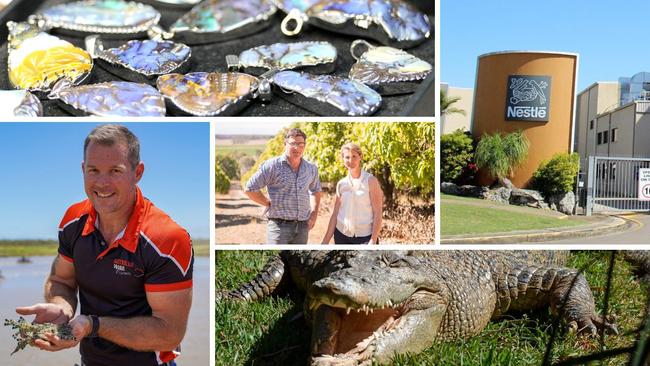
Mackay
Don't miss out on the headlines from Mackay. Followed categories will be added to My News.
From delectable delights, jingling jewels, scrumptious seafood or pristine produce - there’s no doubt the world wants a slice of some of Queensland’s homegrown delicacies.
Some of those in-demand products are made, processed and grown right here in the Mackay region.
According to data from the Australian Bureau of Statistics Queensland’s overseas exports grew in value by 90.4 per cent in 2022.
The data showed that the sunshine state had exported a whopping $108.9 billion of product in the year up to May 2022, growing by $51.7 billion.
According to ABS, Japan was Queensland’s largest export destination over the year to May 2022 with $19.0 billion of product hitting their shores.
This was an increase of $11.5 billion from the year to May 2021.
India was Queensland’s second largest export destination with $17.7 billion.
Below is a list of just some of the Queensland made and grown items that are shipped for consumption in the global market.
1. Specialty steaks (Mackay/Whitsundays)
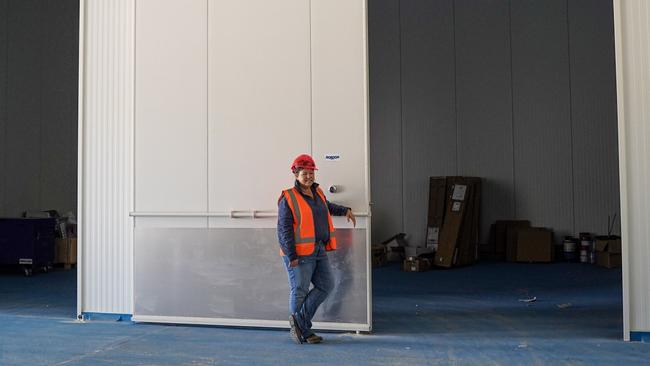
Nestled in the Queensland mining town of Moranbah is a multimillion-dollar operation which exports Central Queensland beef to 30 countries across the globe.
In 2021 the Angus family opened their new $37 million designer abattoir - Signature Onfarm.
The facility includes four big chillers or “big fridge(s)” plus blast freezers to gradually reduce beef to the correct temperature over two days instead of the typical 24 hours.
In the boning room, the Angus’ have shaken up the production line with one team to work on one bovine at a time.
The process lets them follow their customers’ 1600 different specifications down to the individual steak’s thickness, fat trimmings and muscle protrusions.
The plant also specialises in dry ageing.
2. Kangaroo meat (Longreach)
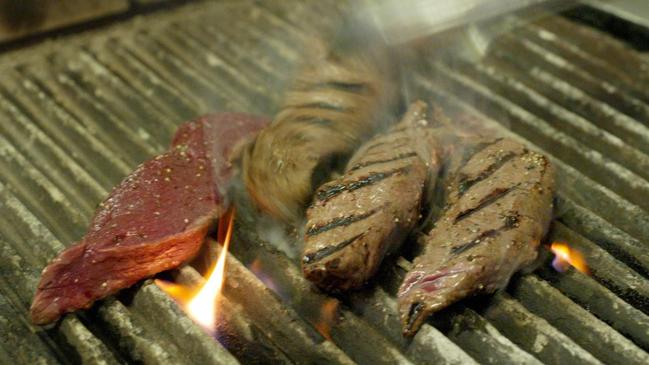
Kangaroos are iconic to Australia, and their meat is processed and exported internationally from western Queensland.
Kangaroo meat is processed in Longreach by Western Game Processing.
The company was started to respond to increased demand for kangaroo meat within the pet food industry.
Last year Western Game Processing received a Rural Economic Development Grant of up to $250,000 to improve energy efficiencies and advance the production capabilities of their meat processing business.
The fund will allow the company to add renewable energy systems to power their facility which will see their processing numbers increase from 8000 carcasses a month, to 14,000.
The funding will also allow Western Game Processing to facilitate business expansion to further export markets.
3. Opals and gems (Winton)
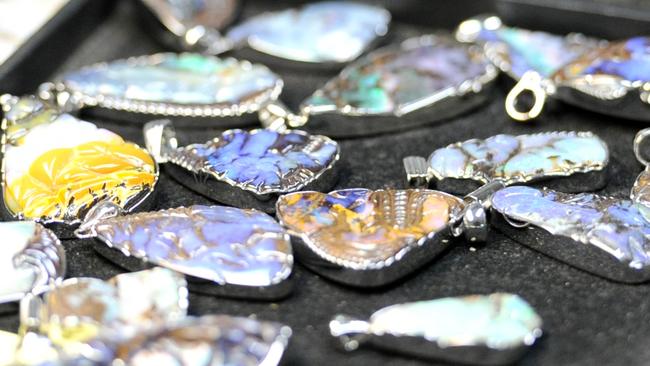
Opals are some of the most beautiful stones in the world, and they’re found deep under Queensland’s iconic, rich red soil.
While Coober Pedy is famous for the gems, they’re also found in outback Queensland at Winton.
Joseph and Natasha Taranto, from The Opal Miner, work 200km south of Winton.
Joseph has been mining and cutting opal from this area for more than 25 years, with his wife Natasha being in the industry for 7 years mining, cutting and designing unique jewellery pieces alongside him.
Through their business the couple sells opal jewellery and also unset opals.
4. Crocodile products (Rockhampton)
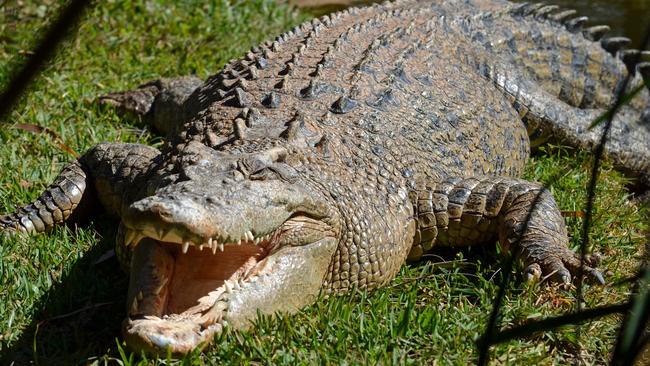
They’re famous, ferocious and feared, but crocodiles are also some of the most loved reptiles in Australia.
Rockhampton is home to the Koorana Crocodile Farm, which has more than 3000 of the modern day dinosaurs in its care.
The Australian crocodile industry is worth millions, with skins being exported internationally for luxury items such as shoes and handbags and crocodile meat being sold within the country.
Crocodile farms around Queensland are also major tourism draw cards, injecting millions into regional economies.
5. Brew-tiful drinks (Bundaberg)
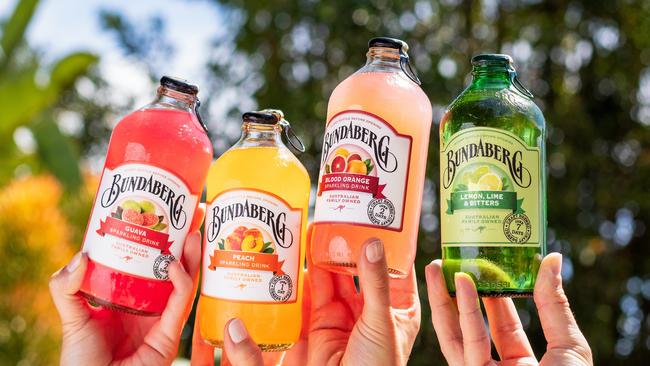
Since 1960, the famous Bundaberg Brewed Drinks has been creating its craft drinks in the Rum City.
The business started exporting across Australia and New Zealand in the 1980s.
But now with 16 flavours, made with local ingredients and flavours, the drinks have hit the global market exporting to more than 60 countries across the globe.
The drinks can also be purchased through online international supermarkets including Tesco in the UK, Walmart in the USA, Countdown in New Zealand and Amazon.
6. Prawns (Mackay)
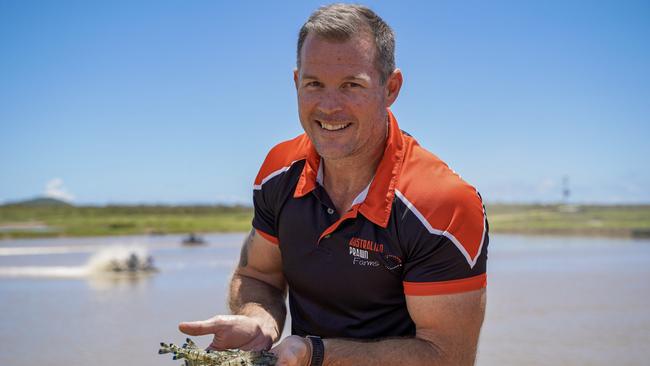
In a small town south of Mackay there are big things happening in the aquaculture sector.
The industry itself is tipped to be worth $1.34b by 2030.
One business that is part of that sector is the Australian Prawn Farms at Ilbilbie.
Ocean tidal flows nourish rows upon rows of square-edged ponds as aerators create gentle whirlpools guiding the millions upon millions of black tiger prawns safely to the edges.
Together, Tassall Group’s operations at Proserpine and Australian Prawn Farm’s lot at Ilbilbie are cultivating science to produce the popular seafood.
Land-grown prawns contributed $128.5m in gross value production to Queensland’s economy throughout 2020-21.
7. Dagwood dogs (Yeppoon)
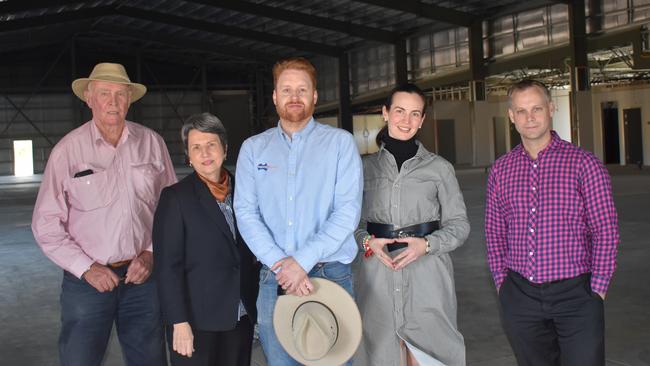
There’s nothing better than a delicious, golden dagwood dog dipped in rich, red tomato sauce after a day of rides and fun at the local show or the Ekka.
One Yeppoon business makes the showtime delicacy right in Central Queensland.
Keppel Brand make the famous Keppel Dogs, as well as crumbed and continental sausages.
The food is sold to more than 18,000 outlets including Caltex and Puma service stations and has been a staple at the Brisbane EKKA for years.
In June last year the company purchased a commercial warehouse facility at the centre of a liquidation.
8. Rock lobster (Townsville)
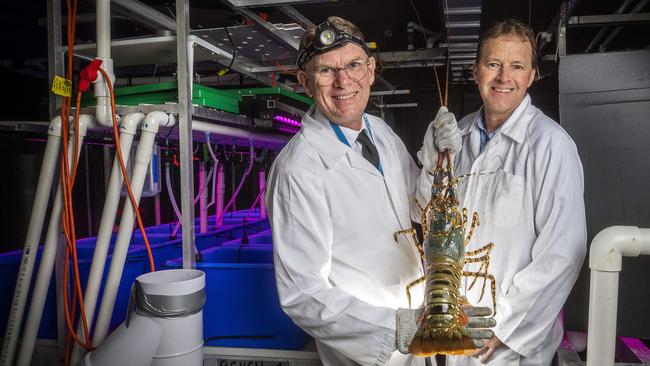
In the tropical north of Queensland, a popular crustacean is exported across the country and the globe.
Ornatas, based at Toomulla Beach near Townsville, recently built a new hatchery which houses the company’s new live feed production.
Tropical Rock lobsters are grown in land based Ornatas nurseries and grown out using high-end sustainable systems.
Using world-leading scientific process and treated with optimum care throughout the growing period, the staff ensure the best quality and welfare of their lobsters at all stages of the life cycle.
The new Ornatas facility includes an extended hatchery, and a Recirculating Aquaculture System plant room.
The new infrastructure will increase Ornatas’ capacity, preparing them for “ambitious growth plans”.
9. Dugong (Mackay)
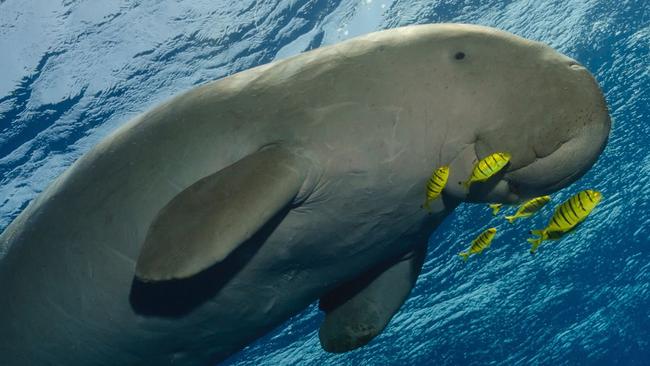
Dugongs were once hunted and farmed for their lucrative oil, meat and hide at a small island off the coast of Seaforth.
A station at Newry Island, about an hour north of Mackay, processed the sea mammals into the first half of the 20th century.
The location was a dugong hotspot with its abundance of seagrass meadows.
A Mr Ching also operated a dugong fishing station at Bloomsbury in the 1870s.
The oil was farmed by “cutting the fish up and boiling it down,” reported the Daily Mercury in 1909, and the dugong bacon was “highly nutritious” and ”excellent” eating as well as being a ”splendid substitute for cod liver oil”.
And the hides were advertised as being of “light” and ”superior” quality.
By the late 1920s, there were concerns dugongs would soon be extinct, and by the 50s, slaughtering them had turned into “entertainment”, said then-Mackay Mayor Ian Wood.
The practice of commercially hunting the dugongs was banned by the Queensland Government the following decade in 1969.
In 1997, the Great Barrier Reef Ministerial Council established Clairview, south of Mackay, as a dugong sanctuary.
10. Finest airline food (Bundaberg)
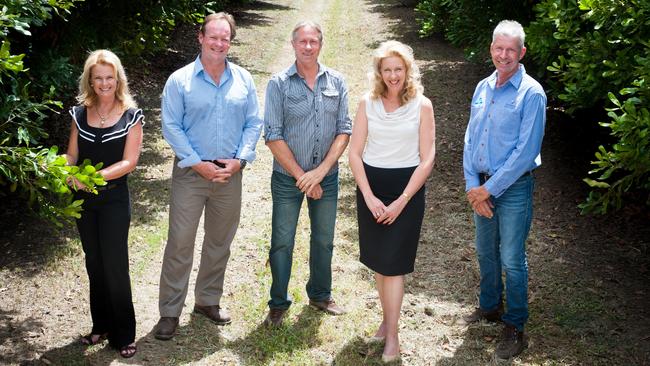
Airline food can sometimes get a bad wrap for being bland or tasteless, but one Bundaberg-based family business is taking its fresh produce to the skies.
FarmFresh Fine Foods, owned by the Gerry and Steinhardt families, has been running for about 20 years and gives local growers a home for their second-grade produce.
The company produces an extensive range of chargrilled, roasted or blanched frozen vegetables and the products can be diced, sliced, pureed or blended with special ingredients, or sauces to meet customer needs.
They have also supplied products for food service on domestic and international airlines.
In 2021 the business announced a $4.3 million expansion which would allow them to value add to their range of roasted frozen products, pureed and pickled vegetables.
The expansion included things such as a new forming, battering and fryline.
11. Dried fruit (Gin Gin)
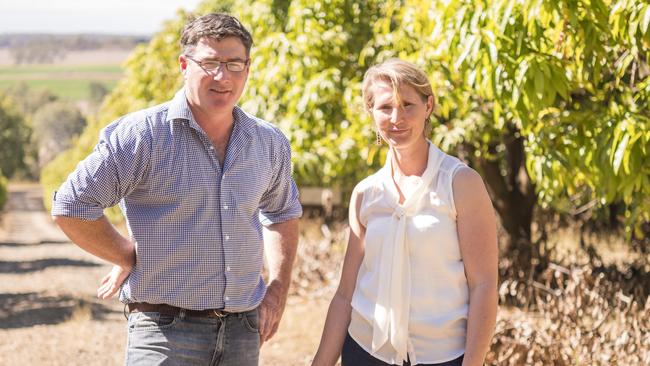
In Gin Gin one couple is providing a home for second grade fruit, saving producers from sending thousands of dollars in product to wastage.
Cameron and Muppi Dean own and run Gin Gin and Dry, a business where fruit, such as mango and citrus, are dried and packaged ready for consumption.
Products made by the business include dried mango, a dried fruit salad, a dried citrus mix and dried apple.
As well as supplying to local and national suppliers, the Gin Gin and Dry products can also be purchased online.
International buyers are encouraged to contact the business for quotes on shipping.
12. Sugar (Burdekin/Hinchinbrook, Mackay, Bundaberg, Maryborough)
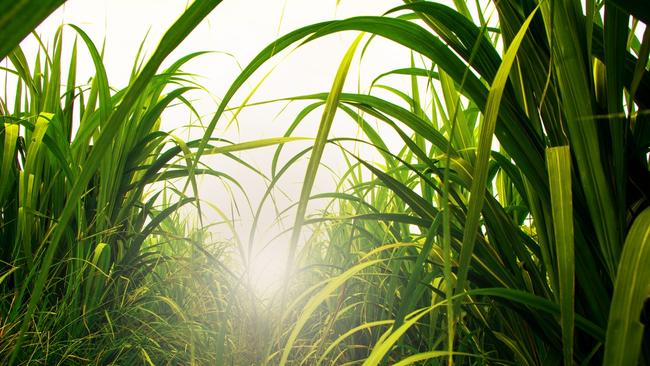
Queensland has three major sugar producing regions in Burdekin/Hinchinbrook, Mackay, Bundaberg and Maryborough, with the sunshine state producing 95 per cent of Australia’s sugar.
More that 80 per cent of all sugar produced in Australia is exported as bulk raw sugar, making Australia the second largest raw sugar exporter in the world.
In recent years, Asia has become a major focus with key export markets including South Korea, Indonesia, Japan and Malaysia.
Sugar by-products such as molasses is also used for things including feeding cattle, cooking and making the iconic Bundaberg Rum.
13. Macadamia (Bundaberg, Gympie)
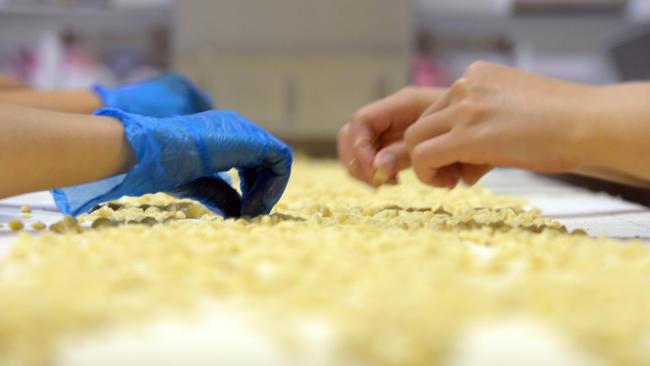
In some sugar production areas, such as Bundaberg, Macadamia plantations are quickly taking over.
A popular addition to baked good, cooking or just eaten on their own, macadamia nuts are native to Australia and are quickly becoming more popular overseas.
The Bundaberg and Gympie regions are two of the biggest producers of macadamias in Australia.
The macadamia industry across Australia has about 800 growers, with Aussie growers producing more than 55,000 megatonnes in 2021.
Eighty per cent of Australian macadamias are exported.
14. Coffee (Gympie)
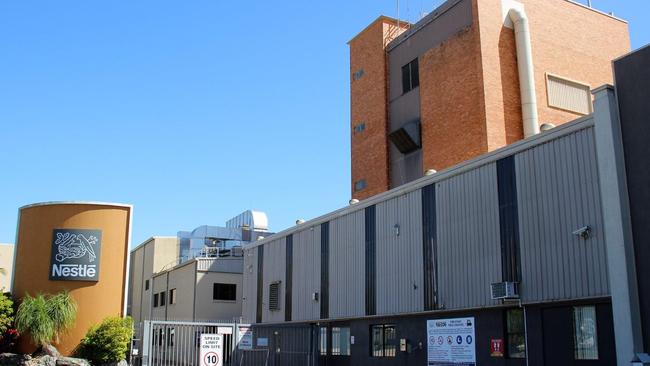
It’s the drink that most people consume first thing in the morning, and a famous variety is blended right here in Queensland.
The Nescafe Blend 43 instant coffee is roasted and blended at Gympie’s Nestle factory.
Established in Switzerland, the company was founded by Henri Nestle and started making the world’s first safe powder baby formula.
The Gympie factory started out in 1953 as a producer of powdered milk, but now is the primary supplier of coffee to the whole of Australia and New Zealand.
15. Clothing for the stars (Gympie)
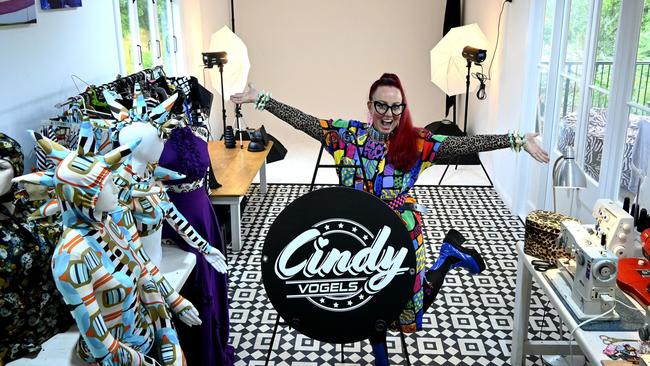
Gympie woman Cindy Vogels started her clothing label Racy and Lucky in mid-2014.
She started the label after she was engaged by Brandon Maxwell Studios in New York to contribute to Lady Gaga’s wardrobe in the lead up to her Cheek to Cheek tour.
Ms Vogels was discovered by one of Brandon Maxwell’s assistants through her Instagram account ‘The Devoted Milliner’.
Racy and Lucky brand shied away from the public choosing to focus on fashion as an art form and not producing clothing for the masses.
The label has mainly dressed music industry artists, actors and presenters. The major body of Racy and Lucky’s work has been captured in film clips, fashion editorials, live performance recordings and the red carpet.




